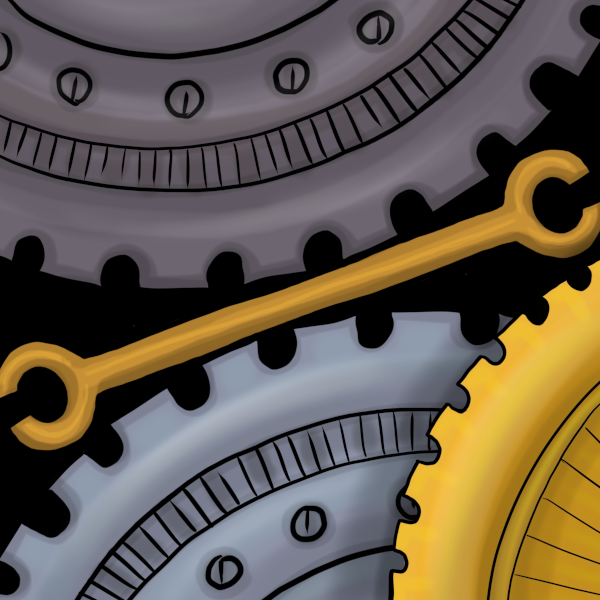Do you support sustainability, social responsibility, tech ethics, or trust and safety? Congratulations, you’re an enemy of progress. That’s according to the venture capitalist Marc Andreessen.
I’m just gonna be straight up that probably none of you have any real experience with VC. Just statistically, it’s probably the case. It’s anecdotal, but I want to share my story.
I helped found a company about three years ago. It’s a software/ services company that focuses on specific kinds of climate change risk. No I won’t tell you who we are. Anyways, me and my cofounders are first time founders, although we both have built business segments within companies, this was our first time in our own. We did try for VC that first year. We basically got rejected all around. What I learned is that the basic function of VC isn’t to fund good ideas. It’s a filter to keep opportunities in the hands of those who already have them. It’s a kind of social filter to make sure only the “right” kind of people get funded. It’s pure credentialism and institutionalism. Anyways, several of our competitors took the cash. As a result, they ballooned in head count and we’re forced to do things the way the vcs expected them to. As a result, almost all of these companies failed or pivoted. We didn’t get funded. We got rejected by all fronts. Instead we just built our client base one brick at a time. Well, now their customers are our customers. We’re signing deals with the big names and still haven’t taken VC money. We’ve got the best in class technology and they are bleeding money.
VC is a poison pill. It’s not there to drive innovation but to filter down who has access to opportunities. Their ideas about what works or doesn’t are bad, and largely driven by the culture they are apart of. They worship elitism and credentials, but will the respect for those who are willing to do the work. It’s inherently extractive. They add nothing. Want to kill a business? Take VC money.
This comment doesn’t even pass the smell test.
If every company that took VC money failed, VCs wouldn’t make any money.
The reality is MOST VC investments fail, but the few who make it are home runs. This is how they make money. The risk/reward of your company was just not a favorable investment for them. Whether it’s because you went to an Ivy League or not is irrelevant.
Without VCs, many of those homeruns would never be able to get off the ground and the US economy would be significantly less dynamic
You are free to take your great idea to VC and see if they get funded bro. I think they are a complete joke at this point.
I don’t have a good business idea, not everyone has to. That’s not even what we’re talking about.
VC is clearly not “a joke”. All you have to do is Google “major companies that took VC funding” to see the impact of it. Of course this leaves out the thousands of others that failed, but long term the winners are going to have a very positive impact on driving innovation.
You may say “those companies would have succeeded anyway” and maybe so, but I doubt it would have happened nearly as fast, if at all.
VC today isn’t VC 20 years ago isnt VC 40 years ago.
VC today has ridiculous expectations on ROI and it re-enforces poor decision making, which, imo, brings down companies that might otherwise have been successful. Its part of a culture that was propped up by access to ridiculously cheap money. Modern VC is a dice roll at best, maybe worse.
It’s pure credentialism and institutionalism.
Not a coincidence that folks with Ivy League degrees get showered with money, while kids from state schools end up doing all the drudge work that keeps infrastructure running.
VC is a poison pill. It’s not there to drive innovation but to filter down who has access to opportunities. Their ideas about what works or doesn’t are bad, and largely driven by the culture they are apart of. They worship elitism and credentials, but will the respect for those who are willing to do the work. It’s inherently extractive. They add nothing. Want to kill a business? Take VC money.
Its an excellent way to cash out of a mediocre idea. Also an excellent way to elevate a mediocre idea from a regional/niche/insider scam to a national stage.
deleted by creator
Billionaires are a symptom, not a cause
A fever is a symptom and similarly it is one that must be treated directly to save the life of the patient.
This is the much stronger analogy. Billionaires are a problem in and of themselves, but only getting rid of billionaires will just lay the groundwork for new billionaires
It really depends on how you “get rid” of billionaires.
If you do it in a way that ties a wealth limit to minimum wages, then we won’t have billionaires until they raise the income of the lower class to a point where the economic climate permits billionaires. Tying it to a fixed 1,000,000,000 monies would be a horribly flawed design because it would not be inflation proof and would vary across currencies. After all, a billionaire in dollar$ isn’t the same as a billionaire in ¥en.
Within a socdem or capitalist society, neither of those solutions would be effective at eliminating billionaires or the inequality that comes with their existence. The only solution that could guarantee an elimination of billionaires is to seize their property and wealth (they can only have 1 house) and establish a socialist society.
They can be both. Let’s step away from the disease terminology and put it plainly.
When there is this much suffering and inequality, billionaires shouldn’t be allowed to happen.
No one deserves that much power nor that much wealth when around 75% of all human beings are facing such a disproportionate amount of struggle that its difficult to even describe the comparison.
Billionaires live in a utopic paradise while the majority of humans are trapped in an existence that ranges from intolerable to abhorrent, abject poverty to barely surviving, all the while spending the majority of their time working, which contributes to the billionaires wealth…
I agree because obviously capitalism pre-exists billionaires by default, but there is also no denying that them being means they have so much more power over every aspect of life than the rest of us, that they now completely control our lives and are absolutely making sure that fighting back becomes harder and harder. To abolish capitalism, we must get rid of the billionaires, they are our biggest hurdle (and are only people, after all).
deleted by creator
Nope, multimillionaires would perpetuate the same problems.
deleted by creator
Today’s billionaires are yesterday’s multimillionaires, and anyone with that much money has essentially endless weath.
deleted by creator
Billions aren’t endless either.
Who are all these extremist wackos who don’t already want to abolish capitalism?
How about we just regulate the companies instead. I know, it’s shocking to all of the Americans here, but just think about it. When companies are allowed to do whatever they want, it’s like being locked in a cage with a psychopath.
Capitalism has lifted more people out of poverty than any other system. It’s not perfect, but neither is any other system.
Industrialization lifts people out of poverty, capitalism sinks them into poverty by stealing the value of their labor as profit.
Also what’s with the phrase “lifted out of poverty?” The fuck does that mean? Why is this same phrase repeated anytime some criticizes capitalism? It’s like a stock phrase or talking point that makes you sound like a robot.
Are you sure about that, because last I checked the Soviets industrialized and their people still stayed poor as hell.
Industrialization happened because of capitalism.
Lol, no steam engines without stealing from the worker, got it. 🙄
I mean, around that time, I’m pretty sure steam engines were literally considered ‘stealing from the worker’.
The same with many other forms of mechanisation.
It’s not that the luddites were wrong, just that they were easily beaten, because humans can’t compete.
There are critics and cynics, but the same is happening now around AI.
There’s not a worker in the world who will vote away their own job.
Unchecked control of the workers for industry will harm us all. We don’t need socialism we need strong unions.
There’s not a worker in the world who will vote away their own job.
The fuck are you talking about? This happens all the time.
Industrialization happened because of individual efforts to make the lives of workers close to them easier.
That’s pretty amazing considering Adam Smith didn’t write The Wealth of Nations until well after steam engines were in use in Britain.
Capitalism must be so powerful it can time travel!
do you think Smith invented capitalism?
The BBC sure seems to think so
Steam engines - primitive ones - were first used in 1712, and The Wealth of Nations was written in 1776. Based on that timing I’d say industrialization caused capitalism, not the other way around.
Modern Capitalism is more a product of the Dutch East India company, chartered in the early 17th century, than Adam Smith’s Wealth of Nations which was written as a critique of the subsequent 200 years of capitalist practices.
deleted by creator
Industrialization in the USSR didn’t happen? Damn. Where did all those nuclear power plants come from, then? What about that massive agricultural surplus? How did they develop their own computer technologies?
I’m amazed that you chose the three worst things you could have picked from the USSR. They literally stole their nuclear tech from the capitalists, did not believe in genetics, period, and created famines from their poor understanding of environmental science and lack of flexibility (Gigantic centralized serf farms are bad if the local weather isn’t ideal! , and their computers were trinary garbage that barely functioned.
They literally stole their nuclear tech from the capitalists
Soviets had a hydrogen bomb before their Western peers.
What’s more the world’s first nuclear power station at Obninsk was connected to the Moscow grid in June of 1954. The Soviets outpaced their American peers in nuclear power, rocketry, and advanced electronics well into the 1970s.
did not believe in genetics, period
That’s flatly untrue. And it completely neglects their role in eliminating smallpox during the 1950s.
created famines from their poor understanding of environmental science and lack of flexibility
https://www.nytimes.com/1983/01/09/world/cia-says-soviet-can-almost-do-without-imports.html
the average Soviet citizen consumes about 3,300 calories a day, as against 3,520 for an American. The report showed that the Soviet diet consists of far more grain and potatoes than the American diet, but less fish and meat and less sugar.
They ended famine in Asia. A continent that suffered mass famine every ten to fifteen years was fully fed through domestic agricultural production by the end of the 1960s.
Stalin was so stacked with grain in the 50s that he was bailing out the English colonies throughout India and Bangledish.
Yes, all those wonderful capitalist innovations like minimum wages, the 5-day work week and paid holidays.
Oh wait those are all things capitalists fought tooth and nail against and social movements made happen. You’re assuming that because something good happened under capitalism that it’s because of it, but most of the actual good things that lifted people out of poverty were anticapitalist. Meanwhile all the needless suffering and deaths because of capitalism never seem to get attributed to it despite the fact that wealth hoarding is responsible for creating so many resource scarcity problems that we have the ability to solve.
That is only true if you use capitalist metrics to measure poverty
(1) It is unlikely that 90% of the human population lived in extreme poverty prior to the 19th century. Historically, unskilled urban labourers in all regions tended to have wages high enough to support a family of four above the poverty line by working 250 days or 12 months a year, except during periods of severe social dislocation, such as famines, wars, and institutionalized dispossession – particularly under colonialism. (2) The rise of capitalism caused a dramatic deterioration of human welfare. In all regions studied here, incorporation into the capitalist world-system was associated with a decline in wages to below subsistence, a deterioration in human stature, and an upturn in premature mortality. In parts of South Asia, sub-Saharan Africa, and Latin America, key welfare metrics have still not recovered. (3) Where progress has occurred, significant improvements in human welfare began several centuries after the rise of capitalism.
The way capitalists use capitalist metrics to prove capitalism is good is really annoying. “Look at our per-capita GDP!”
“Yeah but you have one billionaire and everyone else goes bankrupt if they get sick.”
“Yeah, but our per-capita GDP is high so we don’t need to do anything.”
deleted by creator
What the hell are you talking about. The nordic countries constantly rate as one of the most economically free countries in the world. Capitalism is everywhere in the nordic countries, but it’s also used to support comprehensive welfare state.
And yes, I come from the “happiest country in the world” so I guess I can literally see that we are quite capitalistic.
I’ve had so many debates with people who say “socialism is a success, it works in Scandinavia”.
And I’m like, when have the Scandinavian and Nordic countries ever been socialist?
deleted by creator
Who are these special “capitalists” you are referring to? Majority of Finnish citizens and literally every major political party here?
deleted by creator
No lol. Also the Finnish health care system is already heavily a mix of public and private sectors because of how our social security system and occupational health care system works.
The fact the Nordic countries are rated as the most happy in the world proves that abolishing capitalism is a fucking awful idea. The Nordic countries are all capitalist.
Those countries are capitalist. Research the Nordic Model.
It’s a myth that capitalism alone has lifted people out of poverty. In fact, many nations have fought to implement strong social policies just to try and shield their citizens from its excesses. For every claim of progress, there are countless tales of exploitation, dispossession, and environmental ruin. Saying no system is perfect trivialises the issue. With capitalism, the true cost is often hidden behind the glittering façade of consumerism, at the expense of human dignity, ethics, and our planet’s health.
Downvoted for saying a simple fact.
Am I on Reddit?
You can take the redditor out of reddit, but you can’t take the reddit out of the redditor
The hivemind is strong on lemmy too. Makes sense, considering the name I suppose.
You’re confusing capitalism with industrialization.
The development of modern modes of production came about nearly two centuries after the foundation of modern marketplace practices. The Dutch East India Company did not bring people out of poverty. Just the opposite. It served as a means of rapidly conquering and subjugating large indigenous populations, by using the speculative bubbles created during periods of looting to construct large militaries capable of further conquest. The rapid militarization and trans-continental looting/pillaging of the 17th and 18th centuries resulted in the increased spread of contagious disease, the worst genocides committed since at least the Roman era, and the formalization of Colonial Era chattel slavery.
Industrialization, which was a product of the mathematical and material sciences renaissance of the late 19th and early 20th centuries, produced huge surpluses in commercial goods and services. Revolutions in textile manufacturing, fertilization, fossil fuel-based transportation and electrification, materials sciences, and medical innovation brought hundreds of millions of people out of the agricultural economy and brought a functional end to a litany of common causes of death. The industrial era was not specific to the capitalist economic mode, but it was practiced most aggressively early on by capitalist states.
But the Industrial Revolution had a huge knock-on effect. Mass media and modern communication reoriented traditional class hierarchies and formed new models for social organization. The seed of socialist theories that had been planted in the 17th and 18th centuries blossomed into massive revolutionary labor movements during the 19th and 20th centuries. This, combined with the industrial collapse of the imperial core in the wake of the First and Second World Wars, signaled the beginning of the end of capitalism as a hegemonic economic force.
By the 1950s, numerous socialist political experiments produced successful industrialized civilizations, some of which even persist into the modern era. Meanwhile, rising standards of living from industrial surpluses in food, fuel, and living space raised living standards globally without regard to one’s economic mode.
The real test of capitalism as an enterprise has kicked in during the last 50 years. By the 1970s, the era of cheap fossil fuel was coming to an end and various economic models were forced to contend with a declining rate of new surplus goods and services. Forced to choose between economic conservation/improved efficiency and a new wave of imperial aggression, the capitalist states have attempted to backpedal into their old traditional colonial models of business. The end result has been a new generation of major military conflicts - from the Vietnamese Jungle to the Iraqi desert - alongside a number of ugly civil wars and domestic insurrections in former capitalist strongholds.
Without a continuous industrial surplus to drive profit, modern capitalist economic models are failing. Quality of life in capitalist states is beginning to decline. And capitalist leaders are turning to more militant methods of seizing natural resources, forcing low-wage labor, and wrecklessly disposing of excess waste.
Capitalism rode the cresting wave of industrialization for a century. But now it is failing. And people in capitalist states - from the UK to Saudi Arabia to the Philippines - are seeing their quality of life erode away at a rapid pace.
Kind of need a valid replacement.
I ask the reader, if you could live in any country in the world, what country would that be? Seriously think about it for a moment. Take your time. … Now, note if the country you just chose is capitalist or not, it almost certainly is.
Yes, capitalism has flaws, but we have yet to see a better system.
But why would they want any change? You not going to talk these people out of been greedy sociopaths
For everyone debating numbers, billionaires, millionaires, whatever. The absolute numbers are irrelevant, what matters is the wealth gap. If the absolute top of the wealth pyramid, 0.01%, earns more than the bottom 5% combined, it’s a problem. A bigger ratio means more wealth concentration, or inequality, whichever term you prefer. The 1% controlling nearly half the wealth of any place, whether city, state or nation, should sound all alarms to do something ASAP to reduce the inequality.
Which never happens, because when you have that much money, you call the shots. Capitalism became a neofeudalism.
Getting pretty tired of seeing people skirt around the issue and instead of zooming out a little more and seeing the big picture, are surrendering to existence under capitalism, and make a living telling us how to make the “best” of it (like they’re convinced they are? I’m not even sure anymore).
Hey tech billionaires, if you want to talk about radical change, let’s abolish
venturecapitalismImagine that being delivered like a cartoon cigar to all 2000+ of them, and it exploding off their face. That would actually be fucking radical, not this bullshit…
I know they’re just trying to sound clever but what a dumb framing. “Oh ho ho Greta Thunberg, you want immediate change, let’s nuke the North Pole! Not so into immediate change now, are you?”
Obviously people don’t want a thing that vaguely aligns with a phrase they use but which is 100% antithetical to their interests.
What we have now is barely capitalism. Back in the day, companies actually competed. Microsoft wouldn’t make a good version of Word for Mac, so Apple reverse engineered the format and created their own office suite that interoperated.
If anyone tried something like that now they’d get sued or get bought. In fact, the practice of simply buying potential competitors is fairly common. Facebook buying upstart social media app Instagram is just one example.
If there’s no competition, markets can’t work. And to have competition you need to let businesses fail. And to let businesses fail you need a robust safety net so people aren’t destitute when some idiot like Musk drives a company into the ground.
No true scotsman would say such a thing.
What do you think other word processors do today? Libreoffice?
What we have now is barely capitalism.
We have some of the most naked and predatory methods of rent seeking imaginable. How on earth is this “barely” capitalism? It is quintessential capitalism. A near-perfect engine of consolidation, profit-seeking, and value growth.
Back in the day, companies actually competed
Competition isn’t the goal of existing capitalist enterprises. It raises unit costs and dilutes profit. Competition is only a means by which a large enterprise temporarily undercuts a smaller local enterprise, until it is starved of revenue and fails. To quote Peter Thiel, “Monopoly is the condition of every successful business.”
If there’s no competition, markets can’t work.
The purpose of markets is to marry nodes in the supply chain at an auction rate. But once the marriages are made, the market no longer serves a purpose. Markets are only a transitory vehicle leading to full vertical integration of the supply chain.
Once you’ve achieved a vertical monopoly, your business model pivots to maximizing margins by raising prices and lowering costs. That’s how you maximize profits. And maximizing profits is the only real goal of a private business enterprise.
you need a robust safety net so people aren’t destitute when some idiot like Musk drives a company into the ground
You don’t want a robust safety net in a capitalist system. Safety nets create a subsidy for unemployment - functionally a wage floor, beyond which people would prefer to be unemployed. Without the threat of poverty hanging over a worker’s head, you won’t get the lowest possible wage rate for their labor. This drives up costs and cuts into profits, which is antithetical to the goals of a capitalist enterprise.
Musk driving his business into the ground serves the end goals of a capitalist system overall (even if it marginally inconveniences Musk and his lenders in the moment). The failure of his firm releases workers into the unemployment pool and allows competitors to hire them at a discount - potentially displacing existing workers who command a higher salary. While Musk’s business flounders, the overall auto market prospers. The profit generated in an individual vehicle sale rises, as supply of vehicles contracts - driving prices up - and cost of labor falls - driving unit costs down.
This is good for the surviving pool of capitalists. Its even good for Musk, over the long term, as a higher rate of profit means more cheap money in the investment pool that he can borrow from in order to pursue his next project.
This is the best summary I could come up with:
In his new self-published Techno-Optimist Manifesto, Andreessen presents his case for the advancement of technology under capitalism as “virtuous” and capable of creating “abundance that lifts all humans”.
Along the way he champions trickle-down economics (famously effective at increasing inequality), claims technology can solve any problem and suggests that slowing AI development is akin to murder.
Andreessen lambasts academia for being “disconnected from the real world, delusional, unelected, and unaccountable – playing God with everyone else’s lives, with total insulation from the consequences”.
Echoes can be heard of Mark Zuckerberg’s infamous former motto: move fast and break things, of Sam Altman comparing OpenAI to the Manhattan Project, and of Elon Musk and Jeff Bezos’ shared vision of space colonisation.
The future that tech elites imagine looks remarkably similar to the one we’re in: unchecked power, consolidated wealth, low regulation and minimal consequences when technology proves to be harmful.
It is possible for technology to play a prominent and positive role in our collective future but this won’t happen by succumbing to a wilfully ignorant, starry-eyed vision of optimism.
The original article contains 762 words, the summary contains 178 words. Saved 77%. I’m a bot and I’m open source!
Of course they’d be against it. It’s basically a free money machine, once you get into it
Based on my experience with venture capital, I’m not convinced venture capital has ever produced anything worthwhile.
Hey now. It produced a ton of Ferraris.


















